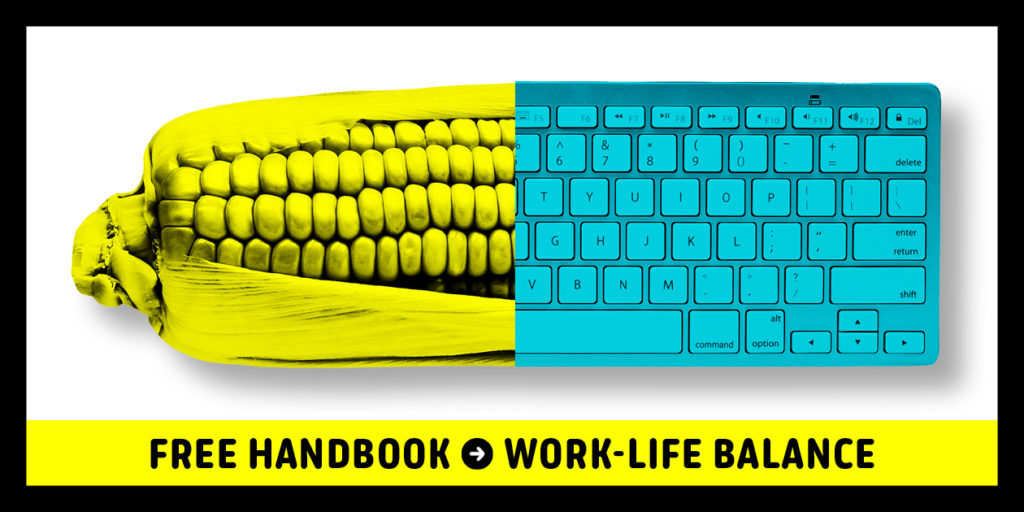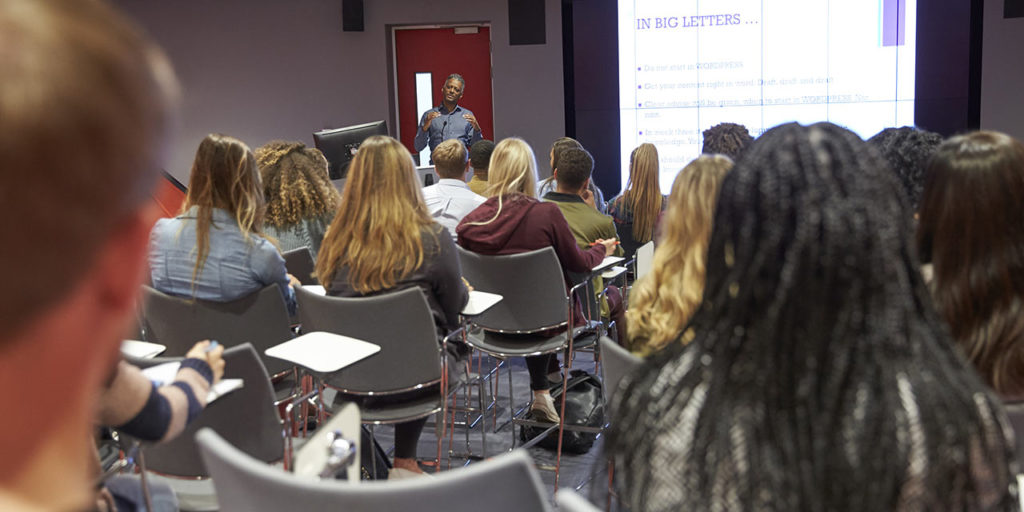How to Help Students Overcome Impostor Syndrome
No one is immune to impostor syndrome’s effects, and millennials, faced with constant comparisons to friends’ accomplishments on social media, can be especially affected
Philip Preville is an award-winning journalist and a former Canadian Journalism Fellow at Massey College at the University of Toronto. He’s currently a member of the Professional Advisory Council with the Department of English at Ryerson University.

No one is immune to impostor syndrome’s effects, and millennials, faced with constant comparisons to friends’ accomplishments on social media, can be especially affected

In this abridged extract from our new e-book, The Professor’s Guide to Agile Teaching, we look at a pair of professors who broke down and rebuilt the way they were teaching and changed their classes for the better. Candice Damiani Biology Lecturer, University of Pittsburgh Candice Damiani could have kept teaching the same old way. […]

Postsecondary educators, who often view their work as a vocation, are experiencing previously unseen levels of occupational stress. This guide will help you reach something more than work-life balance: a healthy integration of your career and your life

Top Hat is the active learning platform that makes it easy for professors to engage students and build comprehension before, during and after class. This interview is part of our recurring series “Academic Admissions” where we ask interesting people to tell us about the transformative role education has played in their lives. For more than […]

Learn how to effectively choose and use clickers in the classroom, and gain tactical insights from professors who have put them to work to improve student outcomes

Co-editor of Inside Higher Ed says that people mainly focus on the 'free' aspect of Open Educational Resources, but often forget about its adaptability and versatility

Video: Washington State University’s Leslie Sprunger helps veterinary students behave professionally by using peer assessment

Video: Florida Atlantic University’s Burcu Karabina on helping liberal arts students overcome their fear of math

Video: UConn’s John Redden on how to make large classrooms more intimate, for students and professors alike

One answer to making sure students actually buy and read their textbooks before class is to write it yourself. And if that's not enough, another is to give your class starring roles

There is a metaphor that postsecondary educators fall back upon when talking about a well-worn course: it’s like a house. Sometimes it needs a little fresh air, some new furniture in the form of think-pair-shares or other active learning exercises, to recapture students’ attention. Sometimes it needs to be stripped down to the studs and […]

“The level of engagement in your students and your classrooms is not fixed. Yes, students will arrive in your classroom with varying levels of curiosity, but there are things you as an instructor can do to make your class better.”

Jasmine Roberts, a professor of communications at The Ohio State University, has a story to tell about how she ended up adopting open educational resources for her courses. It was, for her, a way to establish the Golden Rule: she did not want to treat her students the way she herself had been treated as […]

Jenel Cavazos and Greg Kitzmiller agree: if there’s one classroom tactic that’s effective at personalizing the student experience in their classrooms, it’s the word cloud. Often found on websites and in presentations, word clouds are clever graphic depictions of search terms and answers to open questions, with the most common words appearing in large print. […]

If you want to become a better educator, the first step is to embrace a growth mindset. We expect it of our students, so we should expect it of ourselves

The world seems to revolve around the Millennial generation. But Generation Z is serious-minded, success-focused and steeped in technology from kindergarten—and now, they’re taking over higher education

Looking for a checklist of things you need to ask a vendor when shopping for a classroom response system? This extract from our latest guide aimed at university administrators will take you through six important criteria to consider

In this extract from our new e-book, How to Use Clickers in Your College Classroom, we look at the historic and modern-day reasons a professor might want to use classroom response systems such as clickers — and some of the pitfalls, too

In this extract from our exclusive e-book, award-winning higher education journalist Philip Preville looks at the history and origin of Bloom's taxonomy and ponders its future place in classrooms that are increasingly dominated by technology

In an exclusive excerpt from our latest e-book, Active Learning: The Perfect Pedagogy for the Digital Classroom, education journalist Philip Preville demonstrates how digital technology can be adapted to the classroom to help facilitate active learning tactics. Over the last 25 years, as lecturing’s reputation as a sound teaching method has waned, the concept of […]